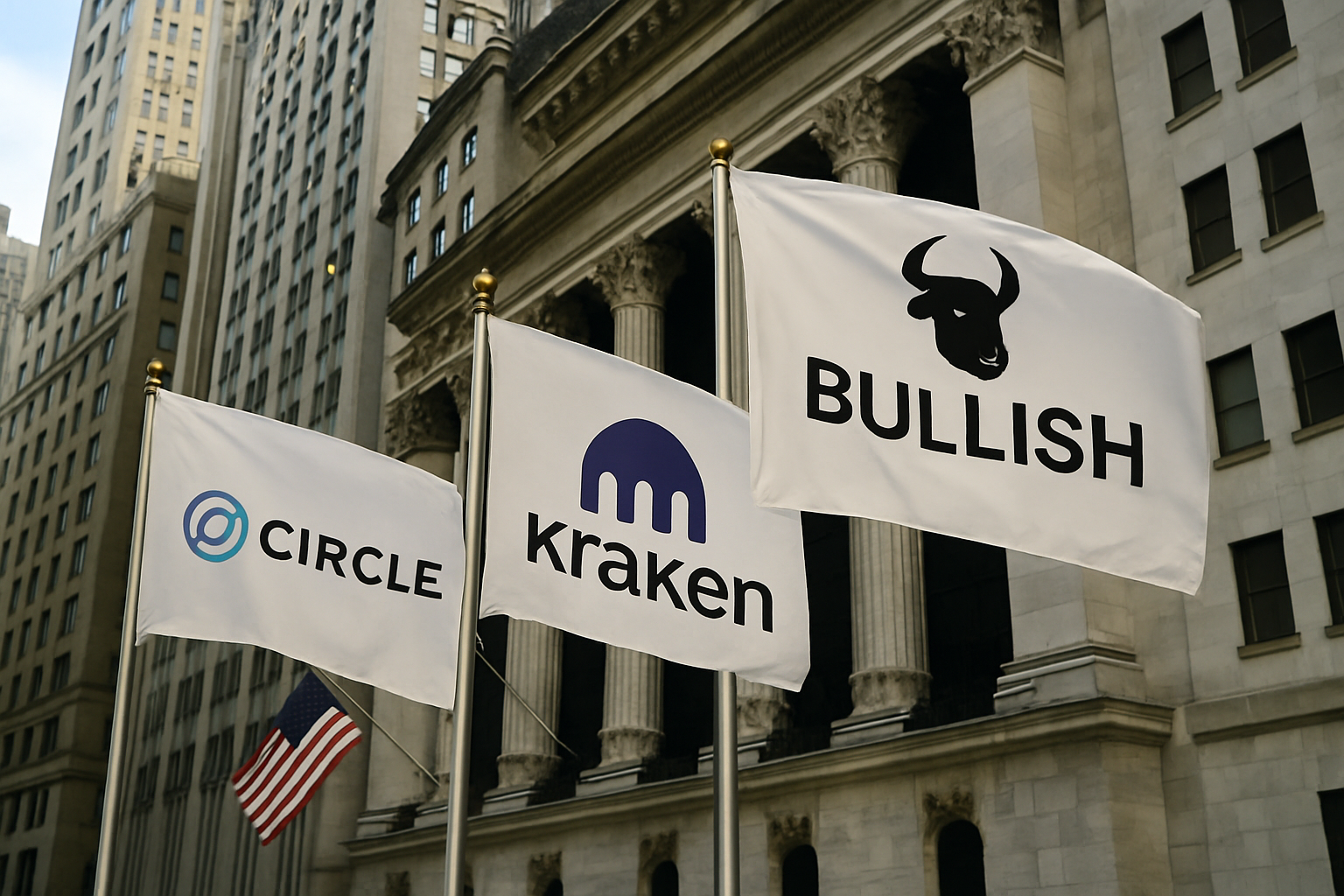Circle’s market debut changes the tone on Wall Street
Circle’s direct listing on the New York Stock Exchange in early June did more than draw attention. It broke a psychological barrier. With a starting price of 31 dollars and a close around 69, the stablecoin issuer delivered a performance that instantly caught the eye of institutional investors. But more importantly, it signaled that crypto-native firms are ready to play in public markets and that Wall Street is finally watching with serious intent.
Others are now moving quietly behind the scenes
Following Circle’s success, exchanges like Gemini and Bullish moved fast. Both have reportedly submitted confidential IPO filings. Kraken, long rumored to be eyeing the public route, is said to be preparing for a 2026 launch, once broader regulatory clarity is achieved. Outside of exchanges, names like Consensys, Fireblocks, Chainalysis and Ledger are also viewed as strong candidates. The common thread across them is not hype, but infrastructure. These are companies that provide the rails, analytics, and custody solutions that institutions are already using.
Regulatory tone has shifted in 2025
What’s different now is the environment. In 2025, the tone from Washington softened. The SEC, previously hostile, has been less aggressive. New bills around market structure and stablecoins are advancing in Congress. A crypto task force was created earlier this year with bipartisan support. This alignment is giving companies more room to act, and investors more confidence to engage.
At the same time, spot ETFs for Bitcoin and Ethereum have attracted tens of billions in inflows. This influx of capital has helped normalize crypto exposure among traditional asset managers. It’s no longer just a hedge it’s becoming a structural allocation.
Circle opened the door, others will test the walls
Circle’s model is based on dollar-backed stablecoins and interest-bearing reserves. For public investors, this feels close to a fintech company with high yield. But the companies lining up behind it bring a different risk-reward dynamic. Exchanges are tied to market cycles. Custody and analytics firms depend on adoption. Still, the IPO pipeline is no longer speculative. It’s active, structured, and already underway.
The next phase of crypto’s evolution may be equity-based
The token economy has brought innovation. But the equity markets are where long-term capital lives. Public listings will add new credibility to the sector and may eventually reduce its dependence on speculative token flows.
For now, one thing is clear. Crypto’s presence on Wall Street is no longer a question of “if” it’s about timing. And based on the current wave, that timing is now.







